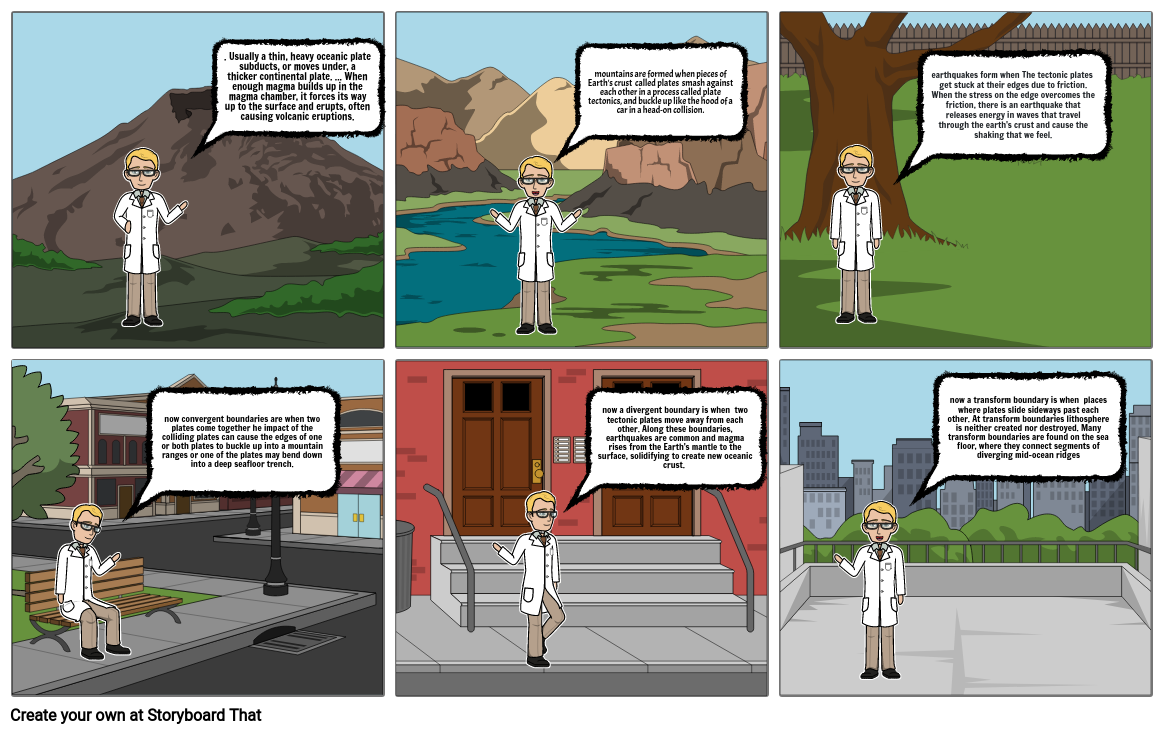science project

Süžeeskeem Tekst
- . Usually a thin, heavy oceanic plate subducts, or moves under, a thicker continental plate. ... When enough magma builds up in the magma chamber, it forces its way up to the surface and erupts, often causing volcanic eruptions.
- mountains are formed when pieces of Earth's crust called plates smash against each other in a process called plate tectonics, and buckle up like the hood of a car in a head-on collision.
- earthquakes form when The tectonic plates get stuck at their edges due to friction. When the stress on the edge overcomes the friction, there is an earthquake that releases energy in waves that travel through the earth's crust and cause the shaking that we feel.
- now convergent boundaries are when two plates come together he impact of the colliding plates can cause the edges of one or both plates to buckle up into a mountain ranges or one of the plates may bend down into a deep seafloor trench.
- now a divergent boundary is when two tectonic plates move away from each other. Along these boundaries, earthquakes are common and magma rises from the Earth's mantle to the surface, solidifying to create new oceanic crust.
- now a transform boundary is when places where plates slide sideways past each other. At transform boundaries lithosphere is neither created nor destroyed. Many transform boundaries are found on the sea floor, where they connect segments of diverging mid-ocean ridges
Loodud üle 30 miljoni süžeeskeemi

